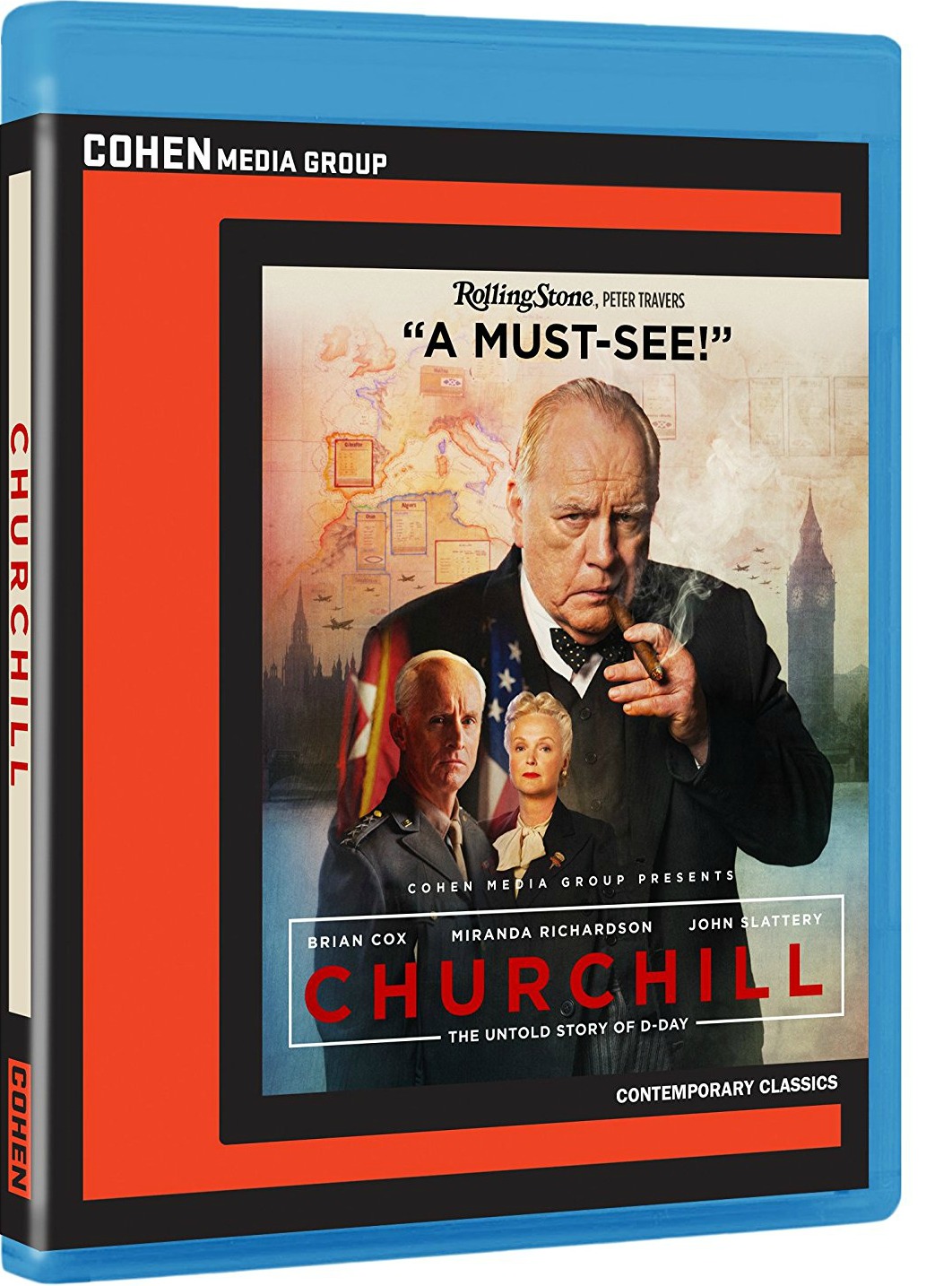Few of us knew that the man considered the greatest Briton of all-time — British Prime Minister and leader of England’s armed forces for many years, Winston Churchill — was vehemently against the pivotal “D-Day” invasion in June 1944 that led to an end to World War II in Europe against Nazi Germany.
Certainly this was news to the stars and director of the film “Churchill” (Cohen Media Group, $30.99), as revealed in the 22-minute making-of documentary on the Blu-ray disc being released Tuesday, Oct. 3.

The fascinating depiction of the demanding and disagreeable 70 year-old Churchill in the days leading up to the planned Allied invasion on the beaches of Normandy France is based on the work of historian and author Alex von Tunzelmann, who was commissioned to research this story and write her first film for director Jonathan Teplitzky (“The Railway Man,” “Burning Man”). In the featurette, she notes that she not only learned much about Churchill’s resistance to the invasion but also how important his wife Clementine was in preventing Churchill from allowing his ego and his bouts with depression to spiral out of control. Oscar-nominee Miranda Richardson (“Dance With a Stranger,” “Harry Potter and the Goblet of Fire”) delivers a solid performance as Clementine.
The timing of the release is ideal, especially for those who saw “Dunkirk” in theaters this past summer, which depicts the invasion itself, and for those watching Netflix’s Emmy-winning “The Crown,” which features Churchill as a primary character during the 1950s as young Queen Elizabeth II is assuming the throne.
In the 105-minute “Churchill,” Brian Cox (“The Bourne Identity,” “Braveheart”) delivers a strong and convincing performance as the iconic character who is consumed with concern, bordering on uncontrollable fear, of a repeat of the mass slaughter of more than 130,000 soldiers during World War I’s Battle of Gallipoli in 1915, for which he was the architect. He was so worried that another 20,000 soldiers would die in the D-Day invasion, that he vigorously and repeatedly challenged Allied leaders General Dwight D. Eisenhower (John Slattery, “Mad Men,” “Captain America: Civil War”) and British Field Marshal Bernard Montgomery (Julian Wadham, “The English Patient”) and gave his aides and his wife fits in between these confrontations.
When he finally realizes he is not going to stop the invasion, he insists on riding one of the first ships to the invasion so at least he won’t be seen as a cowardly leader who sat back in his office while so many of his troops were killed (the more than 4,000 combined Allied soldiers killed during the invasion was far fewer than projected by all military leaders and acceptable numbers based on the strategic success of the invasion).
Despite the remarkably patient efforts of Eisenhower and his wife, Churchill was eventually only dissuaded from persisting with riding on the ship by King George VI. James Purefoy (History Channel’s “Roots” miniseries) delivers a heartfelt and impassioned plea to Churchill in one of the film’s most poignant scenes.
When a film like “Churchill” exposes little-known and unpleasant aspects of the real personality traits of our beloved and revered figures, it can be disappointing in some regards; but it is nonetheless important, illuminating, and quite fascinating.
— By Scott Hettrick
